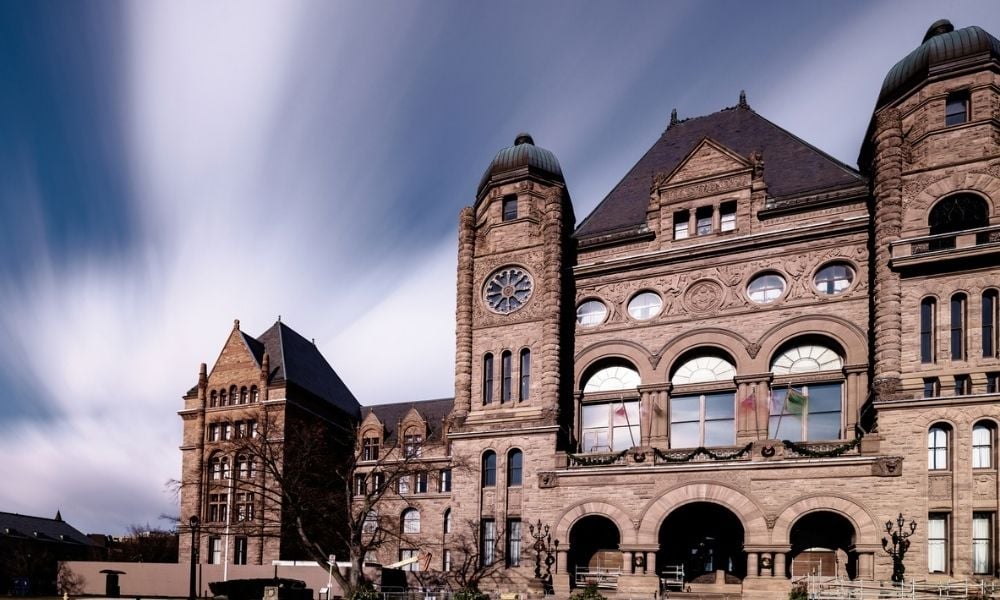
Two new judges assigned to Halton and the other four to Toronto

Ontario Attorney General Doug Downey has announced the appointment of six justices to the Ontario Court of Justice – Jennifer Marie Campitelli, Brian Gregory Puddington, Brock Jones, Michael Waby, Joseph Callaghan, and Robert Wright − effective December 31, 2021.
Chief Justice Lise Maisonneuve has assigned Campitelli and Puddington to Halton, and Jones, Waby, Callaghan and Wright to Toronto, according a bulletin from the Ministry of the Attorney General.
Called to the bar in 2007, Justice Campitelli worked as a senior Crown counsel and a team leader with the Public Prosecution Service of Canada (PPSC). She prosecuted cases in the Ontario and Superior Courts of Justice, including complex prosecutions with the Ministry of the Attorney General’s guns-and-gangs unit.
Campitelli founded Brampton’s first hard drug diversion program in which she acted as the PPSC head to address prosecutions for possession of hard drugs. She is also a representative to the National Committee for Mental Health and Wellness to improve mental health in the PPSC workplace.
Justice Puddington was called to the bar in 2002. He worked as a team leader and a senior counsel of the Toronto team at PPSC. He is a designated wiretap agent who regularly presents on the use of confidential informants in wiretaps and search warrants to various police services across Ontario.
Puddington served as a co-coordinator of the summer student and articling student program in the PPSC − the program that earned him the PPSC National Creativity and Innovation Award. He also helped create and teach a four-month trial advocacy course for articling students.
Justice Jones, admitted to the bar in 2005, was an assistant Crown attorney assigned to prosecute adult and youth criminal justice cases before the Ontario and Superior Courts of Justice. He also acted a counsel to the chief justice of the Ontario Court of Justice.
Jones worked with the Ministry of the Attorney General’s criminal law division, Legal Aid Ontario, and various community organizations to provide self-represented accused with the means to access the courts. He also served as the past chair of the children and youth law section of the Ontario Bar Association.
Admitted to the bar in the United Kingdom in 1998 and then Ontario in 2002, Justice Waby worked as a Crown attorney in Toronto for over a decade. He is the legal director of the Ministry of the Attorney General’s recovery division. He supported the restoration of court operations during the COVID-19 pandemic and led the work resuming jury trials and provincial offences courts.
Waby headed and implemented the Ministry of the Attorney General’s s work on race-based data collection. He also acted as the executive director of the criminal modernization group in which he consolidated the Ministry of the Attorney General’s modernization work.
Justice Callaghan, called to the bar in 1997, joined the North York Crown’s Office in 1999, in which he served first, as an assistant Crown attorney and then, as a deputy Crown attorney. He worked with the Office of Strategic Initiatives to help develop an electronic case management and scheduling application which moved all assistant Crown attorneys and non-legal staff from paper to electronic files.
Callaghan is a member of the criminal modernization committee of the Ontario Court of Justice in which he advises the chief justice and assists the assistant deputy attorney general. He also served as the director of backlog recovery for the criminal law division of the Ministry of the Attorney General.
Admitted to the bar in 2005, Justice Wright served as the deputy minister’s office lead and special counsel with the Ministry of the Attorney General. Prior to this, he was an assistant Crown attorney assigned to the Toronto homicide team. He has a background in summary conviction appeals, financial crimes, child abuse, and the Youth Criminal Justice Act.
Wright was also a former counsel to the deputy attorney general, providing legal and operational advice. He worked across ministries and with stakeholders on policy development in which he held leadership roles on various projects, including justice centres, police-oversight review, jury-source modernization, and Criminal Code amendments.